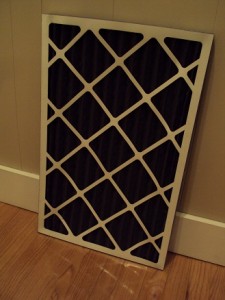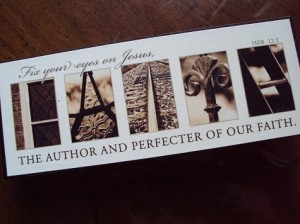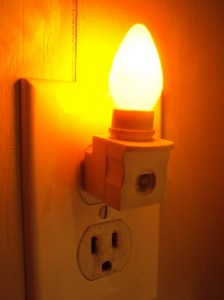Last night the thermometer outside my kitchen window sunk to 9 degrees. When I put my head on the pillow I was thankful for my furnace and prayed God would rescue anyone faced with spending the bitter cold night outdoors.
But this morning when I came downstairs, the house was surprisingly chilly. I turned the thermostat up to 72, then 74, and even 76, but the indoor temperature remained in the sixties.
After church, while doing dishes with my coat on, I called the furnace man, Norm, and presented the problem. He asked when I’d last changed the filter. “Never,” I said.
Directing me to the basement (without any judgment in his voice), he walked me through the process of finding and removing the old filter. “Hold it up to the light,” he said. “Can you see through it?”
“No.”
“Not even a little?”
“No. It’s completely black.”
Without any criticism, his thoughtful response was, “Then our problem is easy to fix. Leave the filter out for a while and your house will warm right up. Then get some new filters tomorrow.”
While I was blubbering out gratitude he said, “Why don’t you take the old filter with you? That’ll help you get the right replacement.”
After we hung up, I stood in front of my purring furnace, filthy filter in hand, and broke into tears. It wasn’t about the warming furnace but the ice cold separation from Nate. He hadn’t been a handyman, but he did do a faithful job of replacing furnace filters. My heating dilemma had highlighted, in an unexpected way, how far away he really was… from the furnace, the filters, the house, and mostly from me. It was one more new bit of widow-awareness and felt like a sledgehammer to the heart.
One of the ways God cares for widows is by placing kindhearted people within arm’s reach, right when we need them. Last summer when the furnace was being installed, Norm mentioned ”my husband” doing this or that, which prompted me to tell him my husband had died. Today on the phone he seemed to remember that, handling my shortcomings with compassion. Whether or not he knew it, he was an instrument of God’s grace. And this isn’t the first time I’ve experienced “gentle handling” from “strangers.”
We’re all familiar with the Bible verse that says we should offer kindness to everyone, because that “person” might really be an angel in disguise. I’m learning the reverse is true, too: certain people act kindly toward me so quickly, I don’t even have a chance to initiate kindness first.
And that’s how our tenderhearted God arranges life around his widows.
“I will tell of the kindnesses of the Lord, the deeds for which he is to be praised, according to all the Lord has done for us— yes, the many good things he has done.” (Isaiah 63:7)




